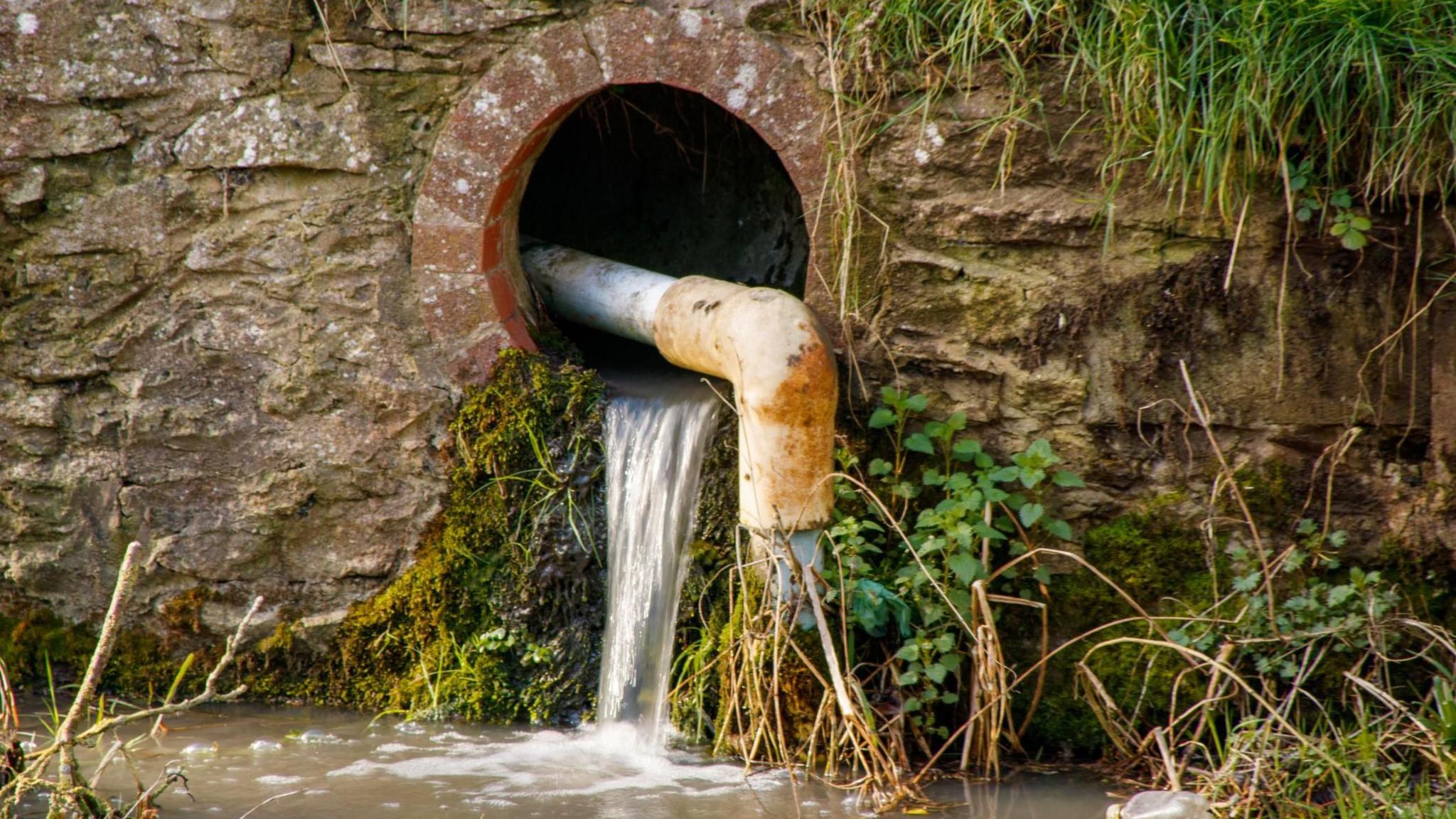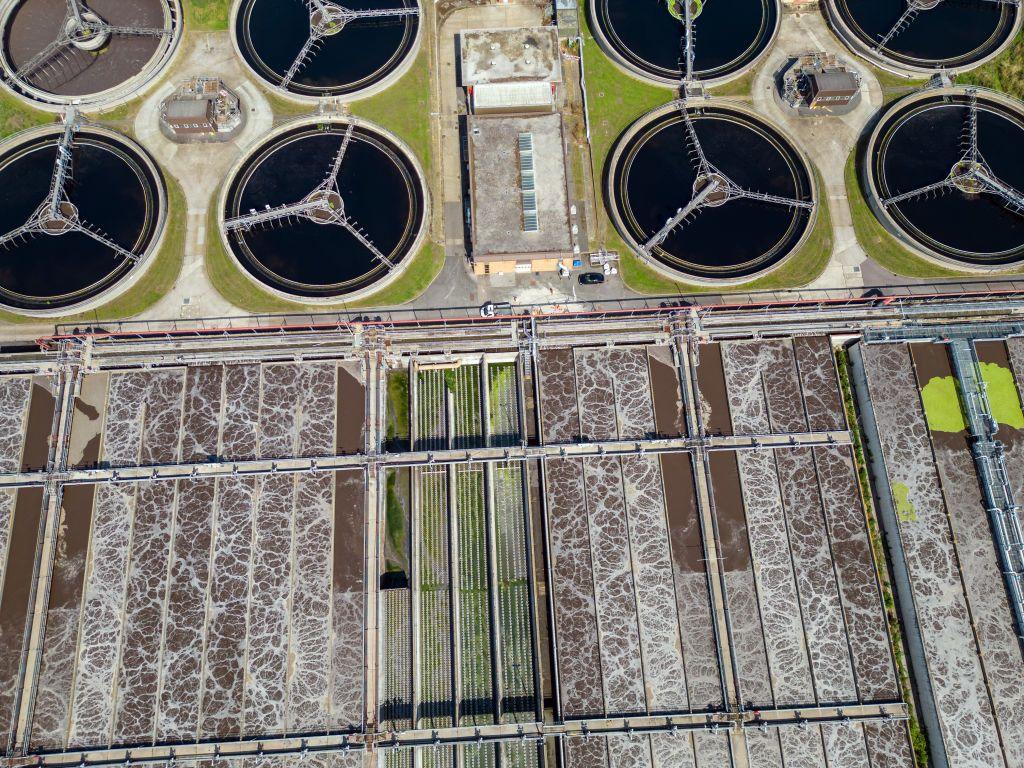Government accused of breaking the law by allowing water companies to dump sewage

- Published
The government and water regulators have broken the law by not being strict enough with water companies that spill sewage into waterways, that's according to The Office for Environmental Protection (OEP).
The OEP said releasing sewage should only be allowed in exceptional circumstances, but that "this has not always been the case".
Water companies are allowed to release raw sewage into waterways when it is raining heavily to prevent a build-up in the system and sewage potentially flowing back into people's homes.
However, releasing raw sewage into waterways during dry spells is illegal.
BBC investigation: Six thousand illegal sewage spills could have happened in 2022
- Published14 June 2024
Water companies apologise for number of sewage spills in 2022
- Published19 May 2023
Do you know where your sewage ends up?
- Published27 October 2021
Two years ago the wildlife charity WildFish complained to the OEP.
They claimed that the previous Conservative government, regulators Ofwat and the Environment Agency (EA) - who are in charge of monitoring the actions of water companies - were allowing too many sewage releases.
Earlier this year, a BBC investigation found that every big water company in England illegally released raw sewage into rivers and seas.
Data suggested that the companies released sewage 6,000 times into rivers and seas in 2022 when it wasn't raining.
And figures from the Environment Agency showed that spills into England's rivers and seas by water companies more than doubled last year.
This resulted in 3.6 million hours of spills for the entire year, compared to 1.75 million hours in 2022.

This is a sewage treatment works. This is where the wastewater is cleaned, but when it rains a lot, these works can become overwhelmed and that's when water companies have permission to release raw sewage.
The Office for Environmental Protection (OEP), sometimes described as the 'UK's environment watchdog', was tasked with looking into the problem on behalf of the public to make sure that the government and regulators were doing things properly.
It said that one of the regulators, Ofwat, had now taken steps to be tougher, having announced record fines for three water companies in August.
Meanwhile the government's environment department, Defra, and the Environment Agency say they are carefully "considering the allegations". Failure to accept them could result in legal action.
A Defra spokesperson said: "For too long, water companies have pumped record levels of sewage into our rivers, lakes and seas," adding that the new government, elected in July, "has acted decisively to refresh outdated guidance to make extremely clear our expectations."
Nick Measham, CEO at wildlife charity WildFish, told the BBC: "We are absolutely delighted and relieved. It actually means we can end this problem of sewage going into rivers.
"But it is a bittersweet moment. It's frustrating when the government and the regulators don't actually do their job in the way you'd hope."
What is sewage, and how it is disposed of?
Sewage is the waste that comes from our toilets, baths, showers, and sinks.
It goes through a network of pipes and ends up in a sewage treatment works. This is where the wastewater is cleaned, so it can safely go back into our rivers and seas.
Sometimes, if it's raining a lot, sewage treatment works can become overwhelmed with wastewater and sewage.
When this happens, water companies have permission to release some untreated raw sewage - that's poo, wee and everything else that goes down toilets, sinks and drains - back into rivers and seas.
Untreated sewage contains chemicals which can be harmful to animals in the water and can lead to a build-up of algae which starves local wildlife of oxygen and produces toxins that can make people or creatures sick.
And the less rainfall there is to dilute the sewage, the more harmful it can be.
Algae caused by sewage in Windermere
